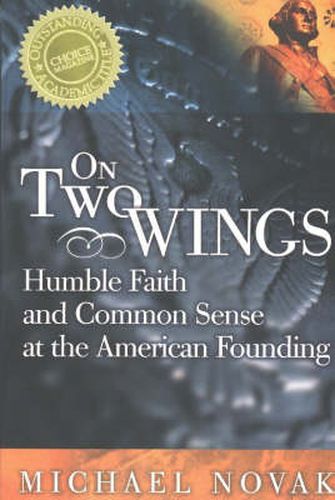Readings Newsletter
Become a Readings Member to make your shopping experience even easier.
Sign in or sign up for free!
You’re not far away from qualifying for FREE standard shipping within Australia
You’ve qualified for FREE standard shipping within Australia
The cart is loading…






‘The leaders of the American Revolution were not, like the leaders of the French revolution, secularists. They did not set out to erase religion. Quite the opposite.’ Michael Novak points out in this brilliant book about the birth of the American idea that the very first act of the Continental Congress in September, 1774, was to pray to Divine Providence for insight on how to respond to news of the British bombardment of Boston. In setting a course for republican self-government, the founders not only believed that they were acting reasonably but that they were carrying out God’s commandment. As Benjamin Franklin said, ‘Rebellion against tyrants is obedience to God.’ Of course there had been religious peoples before in history – including Jews and Christians – who did not see in faith the beacon of civil liberty. Novak points out that the American eagle could not have risen without the empirical turn of mind embodied in John Locke’s teaching on the ends of government and the consent of the governed. Yet as he also shows, the founders believed that liberty depended on certain habits of the heart-and that these in turn depended on faith as well as reason. Novak probes the innermost
$9.00 standard shipping within Australia
FREE standard shipping within Australia for orders over $100.00
Express & International shipping calculated at checkout
‘The leaders of the American Revolution were not, like the leaders of the French revolution, secularists. They did not set out to erase religion. Quite the opposite.’ Michael Novak points out in this brilliant book about the birth of the American idea that the very first act of the Continental Congress in September, 1774, was to pray to Divine Providence for insight on how to respond to news of the British bombardment of Boston. In setting a course for republican self-government, the founders not only believed that they were acting reasonably but that they were carrying out God’s commandment. As Benjamin Franklin said, ‘Rebellion against tyrants is obedience to God.’ Of course there had been religious peoples before in history – including Jews and Christians – who did not see in faith the beacon of civil liberty. Novak points out that the American eagle could not have risen without the empirical turn of mind embodied in John Locke’s teaching on the ends of government and the consent of the governed. Yet as he also shows, the founders believed that liberty depended on certain habits of the heart-and that these in turn depended on faith as well as reason. Novak probes the innermost